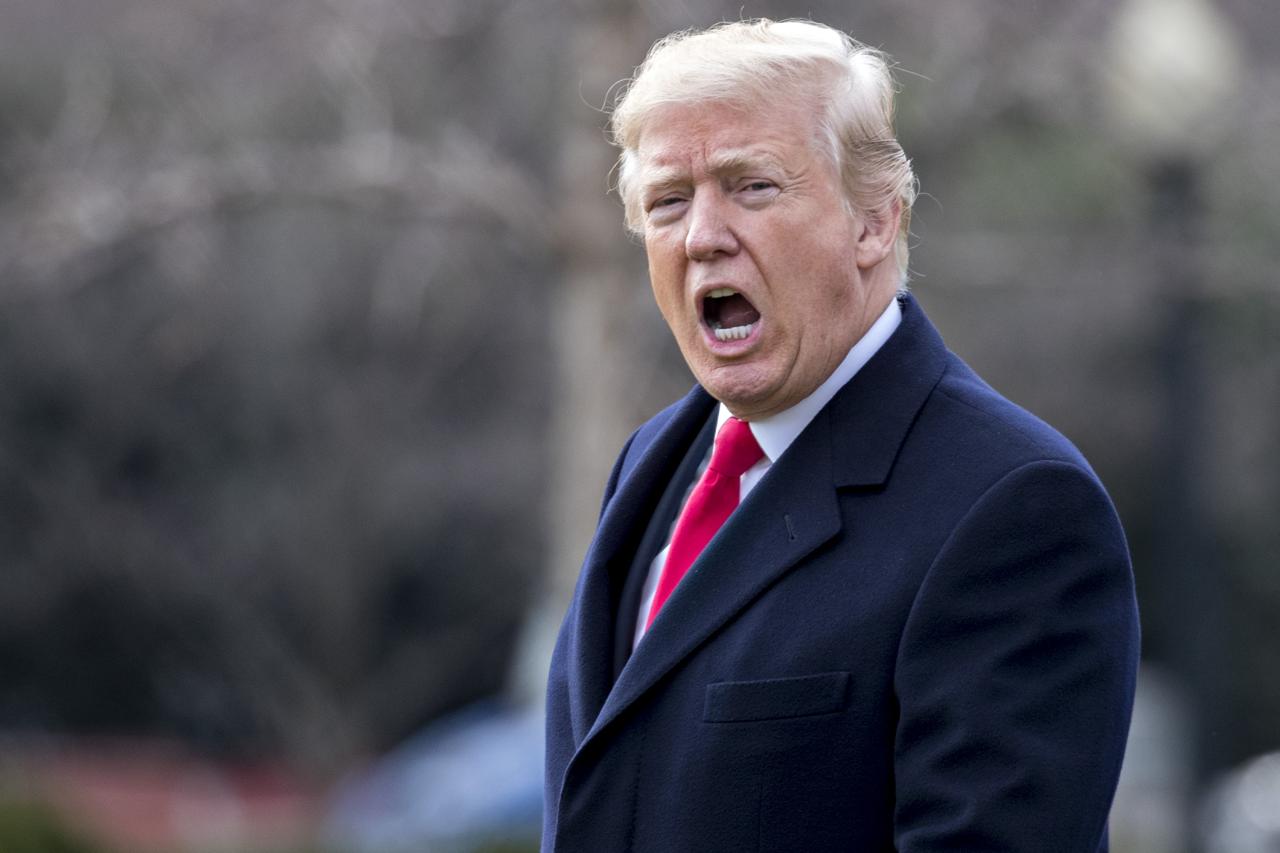Former President Donald Trump just had a brutally rough couple of weeks in court. It’s not likely to get better soon.
Lawyers from his retinue flipped on him like buckwheat hotcakes, taking guilty pleas and agreeing to hand over documents and testify against him. His current lawyer, Alina Habba, had to ask a judge not to roll his eyes while she questioned a witness. Trump’s attempt to get his $250 million civil fraud mega-trial tossed out went down in flames, prompting him to stun a New York City courtroom by standing up and storming out with his surprised Secret Service detail scurrying after him.
Now, he’s begun playing a dangerous game: Testing exactly what kind of incendiary language judges will allow him to use about his legal proceedings in public before they hand him meaningful penalties. Punishment cou
ld eventually include jail time, in a dynamic that turns Trump’s notoriously big mouth into a major legal liability.
Several crucial questions now loom: How far will Trump go? How long will judges put up with his antics? And will Trump’s need to speak out to further his presidential ambitions ultimately combine with his defiant nature and his addiction to social media to land him behind bars… before he’s even found guilty of a crime?
The answers hang in the balance of this high-stakes courtroom drama, which is playing out months before his first-of-four criminal trials is even set to begin.
Trump’s seemingly compulsive brinkmanship fits an image painted by his own former Attorney General William Bar, who once compared Trump to a petulant child determined to test parental limits.
“He’s like a defiant 9-year-old kid who is always pushing the glass towards the edge of the table, defying his parents from stopping him from doing it,” Barr said in June, adding that “our country can’t be a therapy session for a troubled man like this.”
Judges, of course, aren’t parents, or therapists. They have a very different and far more menacing set of tools at their disposal.
In Manhattan, Judge Arthur Engoron has already slapped Trump with two escalating fines for violations of a very limited gag order that specifically bars Trump from criticizing members of Engoron’s staff.
The order came down after Trump mocked the judge’s law clerk, Allison Greenfield, as “Schumer’s girlfriend,” in a social media post referencing to Democratic Senate majority leader Chuck Schumer.
The judge then fined Trump $5,000 after discovering that an identical post was never removed from Trump’s website, although Judge Engoron accepted Trump’s lawyer’s assurance that this omission was inadvertent.
But Trump then made another comment outside the courtroom that the judge found objectionable.
On Wednesday, during the trial lunch break, Trump told reporters: “This judge is a very partisan judge, with a person who is very partisan sitting alongside him—perhaps even much more partisan than he is.”
Judge Engron then hauled Trump up onto the witness stand to explain himself under oath.
“I am very protective of my staff,” Judge Engoron said. He added: “I don’t want anybody killed.”
Trump insisted he had been talking about his former-attorney-turned-critic, Michael Cohen, who had been testifying—and not the judge’s law clerk this time.
Judge Engoron found that Trump’s “testimony rings hollow and untrue,” and hit Trump with a $10,000 fine.
The judge warned him: “Don’t do it again, or it will be worse.”
Meanwhile in Washington D.C., Trump is also testing the patience of Judge Tanya Chutkan, who is overseeing his federal criminal trial for alleged election subversion.
Judge Chutkan placed a more extensive partial gag order on Trump, barring him from verbally targeting potential witnesses in relation to their possible testimony, and also prosecutors and members of her court.
She then temporarily froze the order and asked both sides to brief her on Trump’s request to pause the order for the duration of his appeal.
You might think that a defendant facing such a dynamic and hoping for a favorable ruling might naturally take the opportunity to show some restraint. Instead, Trump posted a social media broadside against his former White House Chief of Staff Mark Meadows, after yet-to-be-confirmed reports surfaced that Meadows had been testifying to Special Counsel Jack Smith’s prosecutors under an immunity deal.
“I don’t think Mark Meadows would lie about the Rigged and Stolen 2020 election merely for getting IMMUNITY against prosecution (PERSECUTION!) by Deranged Prosecutor Jack Smith,” Trump wrote.
That line appeared to fly directly in the face of Judge Chutkan’s concerns about Trump potentially influencing witnesses, and her explicit objections to Trump repeatedly calling Smith “deranged” and a “thug.”
Smith’s prosecutors pounced. They featured Trump’s post prominently in a new legal filing asking Chutkan to lift her stay of the gag order, and to modify Trump’s terms of release.
Smith’s team called Trump’s post a “threatening” attempt to “influence and intimidate” Meadows on the subject of the former White House senior staffer’s testimony.
Smith’s team wrote: “There has never been a criminal case in which a court has granted a defendant an unfettered right to try his case in the media, malign the presiding judge as a ‘fraud’ and a ‘hack,’ attack the prosecutor as ‘deranged’ and a ‘thug,’ and, after promising witnesses and others, ‘IF YOU GO AFTER ME, I’M COMING AFTER YOU,’ target specific witnesses with attacks on their character and credibility, even suggesting that one witness’s actions warrant the ‘punishment’ of ‘DEATH!’”
Now, Trump and the prosecutors are waiting on Judge Chutkan’s response.
And the question becomes, how this dangerous game between Trump and the judges will play out—and what the judges will do if they decide Trump has gone too far.
Related posts:
Views: 0
 RSS Feed
RSS Feed

















 October 27th, 2023
October 27th, 2023  Awake Goy
Awake Goy 
 Posted in
Posted in  Tags:
Tags: 
















